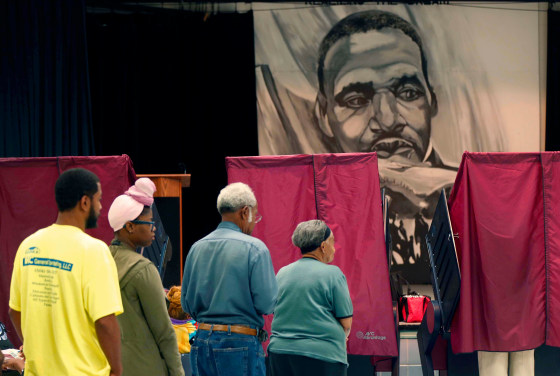WASHINGTON — In a closely watched racial gerrymandering case, the Supreme Court declined Thursday to allow a federal judge in Louisiana to move forward with plans to oversee the drawing of new state congressional map that could be used in the 2024 election.
The court rejected the emergency requests of civil rights groups challenging Republican-drawn map used in the 2022 election that they say shortchanged Black voters.
No justices publicly dissented from the decision, with liberal Justice Ketanji Brown Jackson writing a brief opinion saying she agreed with the outcome.
She noted that the lower court's role in overseeing the drawing of a new map was merely delayed and that the process should be completed in time for the 2024 election.
The justices left in place a ruling by the New Orleans-based 5th U.S. Circuit Court of Appeals that prevented U.S. District Judge Shelly Dick from holding a hearing on imposing a court-ordered map.
The state had objected to the move, saying among other things that it had not had enough time to draw its own revised map.
The Supreme Court action is not the final word in the case, as a separate issue is pending at the appeals court.
Dick ruled last year that the state's original map was most likely discriminatory under the Voting Rights Act, but the ruling was put on hold while the Supreme Court handled a similar case from Alabama.
In the Alabama case, the Supreme Court in June unexpectedly upheld a lower court ruling that said the Republican-drawn map in the state discriminated against Black voters, paving the way for a new map to be drawn for 2024. That map has now been drawn.
In light of that decision, the challengers to Louisiana’s map said there should be a similar outcome in their case.
Using the Louisiana Legislature's original map, Republicans won five of the six districts in November’s midterm elections.
The plaintiffs say there should be two districts that would allow Black voters to elect the candidates of their choosing instead of just one district.
Black voters have historically voted for Democrats, and a revised map could give Democrats an opportunity to pick up a seat, which could help them regain control of the closely divided House of Representatives.

